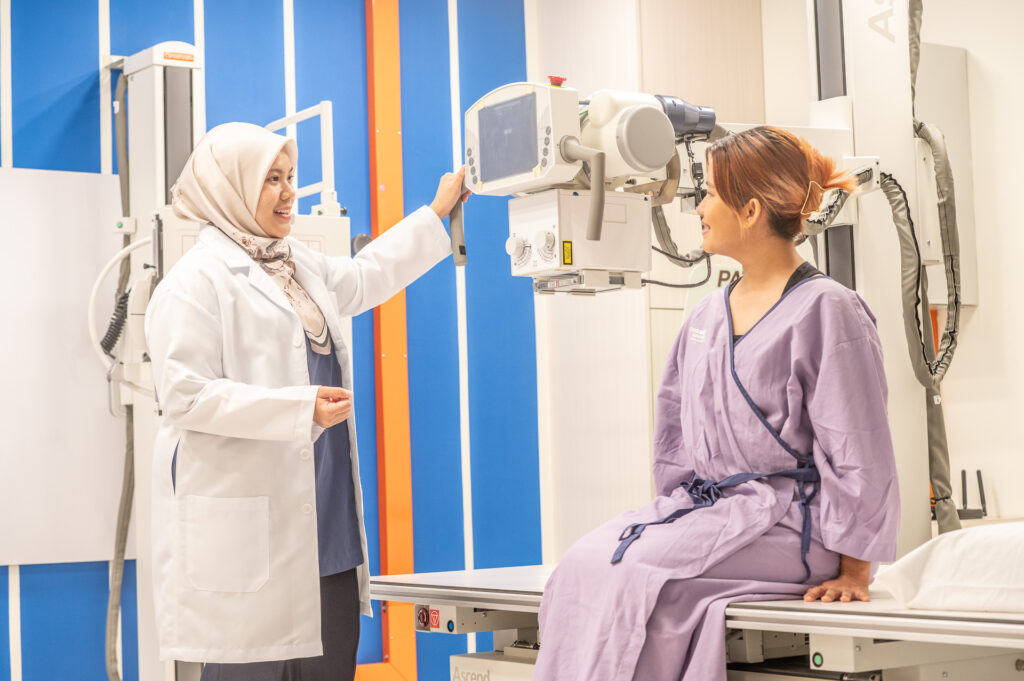Health screening is a preventive healthcare approach designed to detect potential health conditions before symptoms appear.
Source: Thomson Hospital
According to the Ministry of Health, cancer is the third most common cause of death in Malaysia in 2022. Among these cancer cases, the 3 most common cancers that occur in Malaysian females are breast, colorectum and cervical. Meanwhile, for men, it’s lung, colorectal and prostate cancer that are the most common in Malaysia.
However, cancer mortality can be reduced if it is detected early. One of the most effective ways to catch cancer early is through health screening.
What is Health Screening?
Health screening is a preventive healthcare approach designed to detect potential health conditions before symptoms appear. It involves various tests, such as blood, urine, ultrasound, X-rays and others to measure your overall health.
For conditions that can remain silent in their initial stages, such as lung cancer, heart disease, and diabetes, early detection is an important factor when it comes to treatment effectiveness.
How Does Health Screening Help in Early Detection of Cancer
From 2017 to 2021, 65.1 percent of cancer cases that were detected were already at stage 3 or 4, and late detection is associated with reduced survival rates.
Some cancers, like lung cancer, are often called a “silent killer” because they tend to develop without noticeable symptoms in the early stages. By the time symptoms like chronic cough, chest pain, or shortness of breath appear, the disease may have already progressed. This is where health screening becomes vital.
Screening tools such as chest X-rays, tumour marker blood tests and Pap smear can help detect signs of abnormalities before symptoms show. If any red flags appear, doctors may recommend more advanced imaging such as Computed Tomography (CT scan), Magnetic Resonance imaging (MRI) or ultrasound to further determine the cause.
Early diagnosis and timely treatment greatly improve outcomes for cancer patients. This is because when the cancer isn’t too large and still hasn’t spread, the successful rate of the treatment is higher. Detection of cancer at its early stages could save your life.
Should You Go For a Health Screening?
While not everyone needs to go for a health screening, a basic health screening just to know more of your body condition can be good for you. However, health screening is encouraged for people who:
1. Have a Family History of Chronic Diseases
Regular health screening is more important for people who have a family history of non-communicable diseases (NCD) as they are at a higher risk of developing these diseases. If you have family members who have developed NCDs like diabetes, heart diseases, stroke and cancer, it increases your chances of getting them too.
2. Are Smokers or Ex-Smokers
If you are a smoker, or have quit after smoking heavily within the last 15 years, you’re generally at a greater risk of lung cancer than non-smokers. Smoking increases your chances of getting lung cancer 15 – 30 times compared to a non-smoker. While you may not have symptoms of lung diseases, a health screening can help you to identify any abnormalities before they start to show at a later stage.
In general, regular screening allows doctors to identify early warning signs before a disease progresses, recommend lifestyle adjustments or follow-up tests to prevent complications and provide reassurance for individuals with risk factors but no current symptoms.
3. Are Aged 18 and Above
According to MySejahtera, individuals aged 18 and above should go for health screening, even when you think or feel like you’re healthy. This is because health screening helps you to detect any disease or condition even before symptoms appear. An early detection also means earlier treatment and a higher chance of successful treatment. You may not know about your family history of diseases, but health screening can help you identify the risks of certain diseases so you can start taking care of your health early.
Which Type of Health Screening Should You Choose?
Thomson Hospital provides a variety of health screening packages to suit different needs:
1. Basic Screening
Basic screening includes fundamental checks such as body mass index (BMI), blood pressure, chest X-ray, cholesterol level, fasting sugar level, kidney and liver functions. This is commonly used as an assessment for general wellness.
2. Comprehensive Screening
A more comprehensive evaluation that can include screening for hepatitis A, B, C, sexually transmitted disease, h.pylori and stress electrocardiogram test. This is for individuals who want to know more about their body, including the risks of certain diseases. This allows them to be aware of it, make adjustments to their lifestyle and diet, and be more prepared if the disease does develop.
3. Targeted Screening
Packages that are focused on certain health aspects such as feminine health, sexual health, pre-marital screening for couples’ health, allergy testing and others.
Get Screened for Peace of Mind
Regular health screenings not only help detect potential lung problems early but also provide reassurance about your overall health. With this information, your doctor can guide you on lifestyle changes if you’re at risk of cancer or provide early treatment in case there is a detection of the disease. Whether you are a smoker, have a family history of diseases, or simply want to be proactive about your health, consider getting your health screened today.
References:
Cancer | World Health Organisation
Health ministry: Sharp rise in cancer cases, late detection raise concern | Malay Mail
Publication Of The Summary Of The Malaysia National Cancer Registry Report 2017-2021
Summary Of Malaysia National Cancer Registry Report 2017-2021 | Ministry of Health Malaysia
Why is early cancer diagnosis important? | Cancer Research UK

